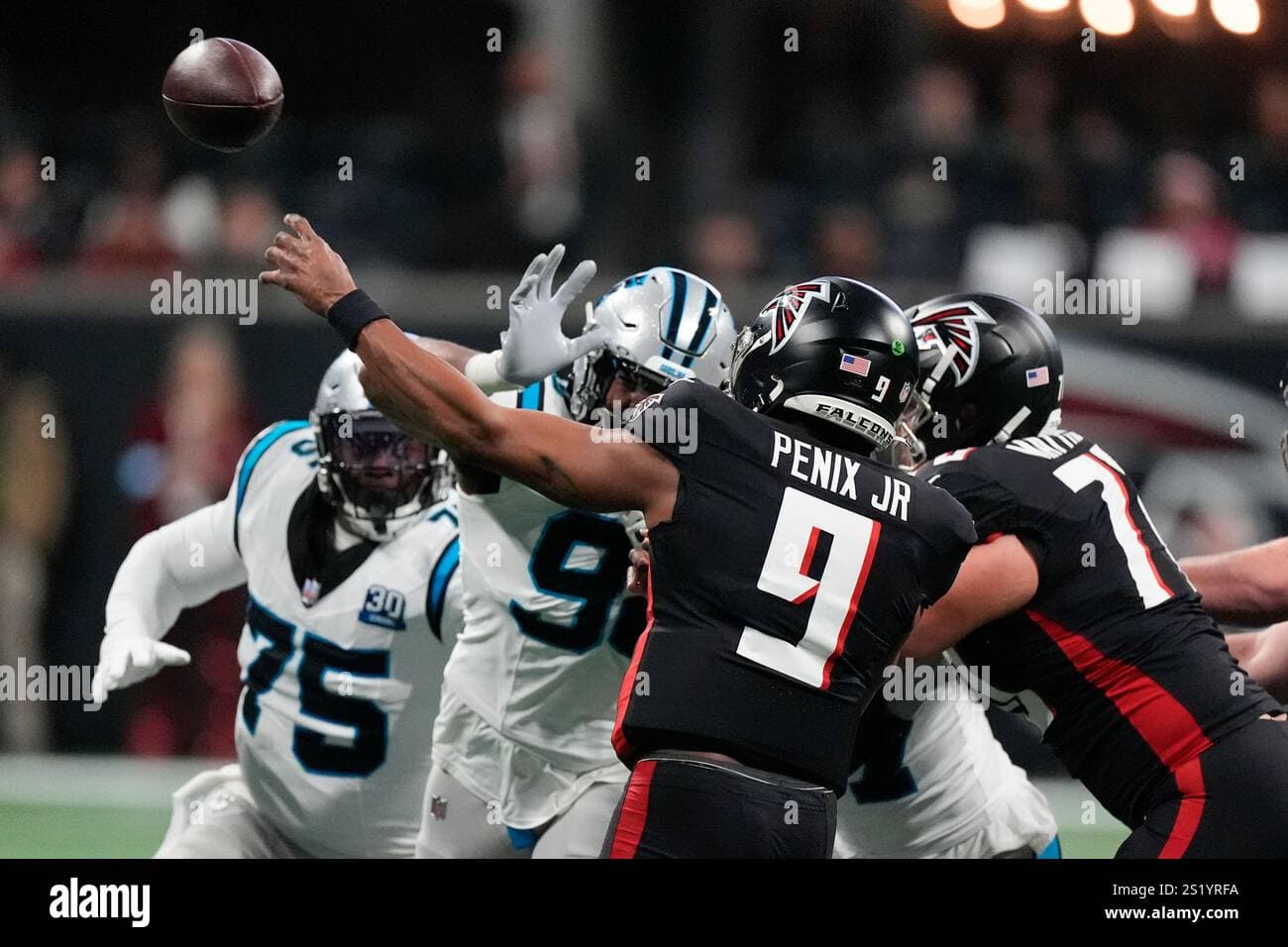Falcons Face Uncertainty After Michael Penix Knee Injury, Cousins Steps In
Michael Penix exited the Falcons game against the Panthers with a knee injury and was replaced by veteran Kirk Cousins, leaving Atlanta to confront immediate roster and strategic questions. The episode highlights broader tensions in the NFL over quarterback depth, player health, and the business ripple effects that can reshape a season.

Michael Penix left the field against the Carolina Panthers after suffering a knee injury, and Kirk Cousins took over under center for the Atlanta Falcons. The substitution injects a fresh layer of uncertainty into a team that now must manage the competing demands of competitive urgency and medical caution while recalibrating its offensive approach with an experienced backup.
Quarterback injuries are among the most consequential events in the NFL. They force teams to make rapid decisions about playing style, personnel usage and long term planning. For the Falcons this moment will test the depth of the roster and the coaching staff's ability to pivot. A change in quarterback typically alters timing, play selection and the way opponents prepare. Even when the replacement is an established veteran, continuity can be difficult to maintain, and coordinators must balance protections for an injured starter with the need to keep the offense effective.
Beyond the immediate X and O considerations, the incident underscores a set of industry trends that have been accelerating across the league. Teams are increasingly hedging their bets at the most important position by investing in veteran insurance policies, developing multi route passing concepts that suit different signal callers and leveraging analytics to reduce exposure to injury. The salary cap era has also made roster construction more fluid, with front offices valuing quarterbacks who can be durable and adaptable. Meanwhile, the market value of quarterbacks can shift overnight when an injury creates opportunity or uncertainty, with implications for trade talks and mid season acquisitions.
The cultural context of the event is significant for Atlanta and the league at large. Quarterback injuries are high visibility moments that draw intense fan scrutiny and media attention, magnifying the narratives that follow a team throughout a season. For fans who have tied their identity to a player, an injury can feel like a communal setback. At the same time, it offers a stage for resilience stories, for backups to seize an opening and for locker rooms to galvanize around shared adversity.
There are also broader social implications. The frequency of injuries and the physical toll on players fuel ongoing conversations about long term health care, post career support and the responsibilities of franchises to their athletes. As teams juggle competitive goals and financial realities, questions about medical transparency and the adequacy of support systems take on heightened urgency. The moment also underscores how fleeting professional opportunity can be, with careers and endorsements vulnerable to a single play.
For Atlanta, the task now is pragmatic and strategic. Medical updates will guide the timeline for Penix, while coaches must determine how to extract the best performance from Cousins without exposing the roster to additional risk. The decisions made in the coming days will shape not only the Falcons record but also the organization business trajectory and the narratives that will define this season for players and fans alike.


